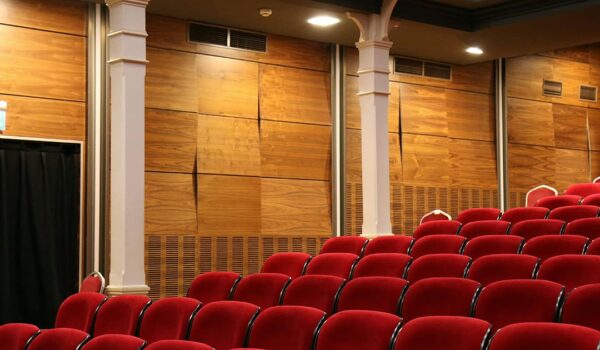During Liria’s annual dinner dance in celebration of Albania’s Independence Day (Dita e Flamurit), a major cultural announcement was made on Sunday, November 24th, at the renowned Anthony’s Pier 4 restaurant in Boston. The event, held in honor of Albania’s historic liberation, took on added significance when Van Christo, a prominent figure in the Albanian-American community, revealed the discovery of two operas about Scanderbeg, the legendary Albanian hero.
David Kosta, Master of Ceremonies at the event, made the announcement following a speech by Van Christo. “Ladies and gentlemen,” Kosta proclaimed, “Van Christo has just informed me that he will soon donate photocopies of two Scanderbeg operas—one by Vivaldi and another by Francoeur—along with English translations, to the Fan Noli Library, the Skanderbeg Museum in Kruja, Albania, and prestigious institutions such as Harvard University’s Department of Music, Boston University’s School of the Arts, and the Boston Conservatory of Music.”
This groundbreaking announcement was the result of years of painstaking research by Van Christo, who has long been recognized for his dedication to preserving Albanian art and culture. Known for his work as the owner of Van Christo Advertising Agency and creator of the popular radio programs “Van Christo Radio Theatre,” Christo has consistently promoted cultural unity among Albanians worldwide. His efforts to find and preserve works dedicated to Albania’s history culminated in this significant cultural discovery.
Van Christo’s passion for Albanian music and culture dates back to his tenure as the conductor of Kor’i Usterit, or the “Worcester Choir,” from 1979 to 1983. This Albanian men’s choir performed across major cities like New York, Philadelphia, and Boston, leaving a lasting impact on the Albanian diaspora in the U.S. But Christo’s most thrilling cultural discovery came in 1982, when he was reading The Albanians, a book by Anton Logoreci. In it, he encountered a passage noting that Antonio Vivaldi, the famed Venetian composer, had written an opera about Scanderbeg, Albania’s national hero.
Overcome with excitement, Christo immediately set out to uncover whether the opera still existed and where it might be found. His search, which spanned three years, took him to musicologists, libraries, and historians across Italy, England, France, and the United States. His efforts finally led him to discover that Vivaldi’s Scanderbeg opera premiered in Florence on June 22, 1718, at the reopening of the Teatro de la Pergola, a historic theater in the city. Vivaldi’s choice of Scanderbeg as the subject of the opera reflected the enduring fame of the Albanian hero, even 300 years after his legendary resistance against the Ottoman Empire.
As if the discovery of Vivaldi’s opera wasn’t enough, Christo stumbled upon another major find—a second opera about Scanderbeg, composed by François Francoeur in the 18th century. This opera, which had been performed before King Louis XV and Queen Marie Charlotte Leszczynska of France at the royal palace in Fontainebleau in 1763, was another testament to Scanderbeg’s far-reaching legacy. Christo eventually located the entire opera, including both the original and a revised version, along with its musical scores and librettos.
Van Christo believes that these operas, particularly Francoeur’s, could find a place in the repertoires of major opera companies today. He has had the work authenticated by Dr. Graham Sadler, a noted musicologist from the University of Hull, and says that it is in excellent condition, ready for revival. Christo expressed his confidence that the Francoeur opera, with its historical and musical significance, could be successfully produced if introduced to the right audiences.
As for Vivaldi’s Scanderbeg, Christo has an even more ambitious dream. He envisions commissioning a modern composer, such as Gian Carlo Menotti, to create a new opera based on Vivaldi’s libretto, incorporating the remaining four arias that survived from the original score. With support from musicologist Professor Michael Talbot of the University of Liverpool, Christo believes that a collaboration of this kind could reinvigorate Vivaldi’s opera and bring it to major stages around the world.
However, such a project would require significant financial backing—an estimated quarter of a million dollars. Van Christo hopes that the Albanian-American community, especially younger generations, will step up to help fund and promote these important cultural works. “Imagine a Vivaldi-Menotti collaboration on a Scanderbeg opera!” Christo mused. His vision is for these operas to not only preserve Albania’s cultural heritage but also to inspire new generations through the revival of these historic masterworks.
With this remarkable discovery, Van Christo has brought to light two forgotten pieces of music history that celebrate one of Albania’s greatest heroes. His dedication to preserving these works demonstrates the enduring importance of Scanderbeg, not only to Albania but to the world of classical music.

